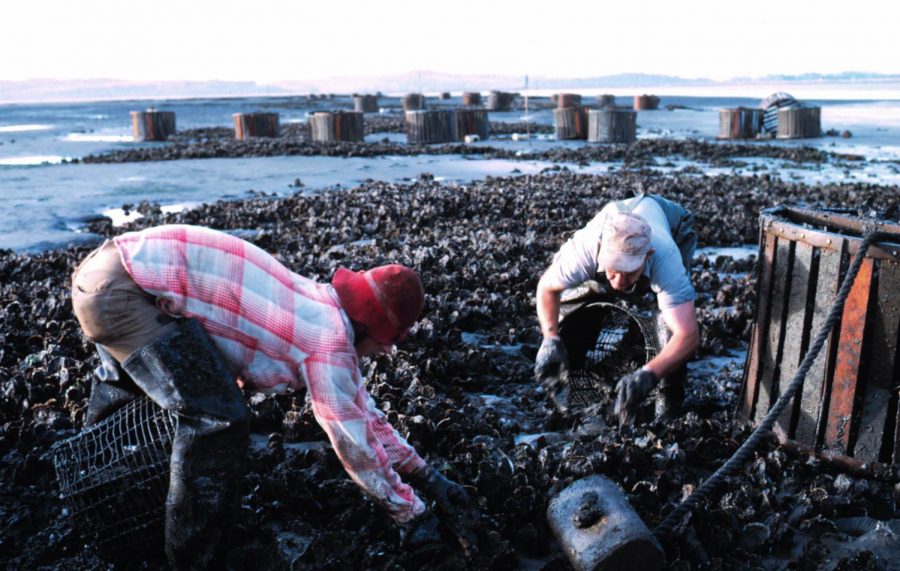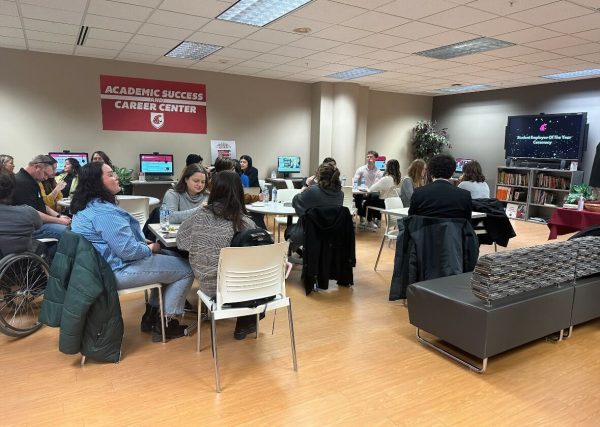WSU tries to rid shore of problem crustacean
State denied permit for insecticide, WSU looks for alternatives
Workers gather oysters in Willapa Bay. Burrowing shrimp kill shellfish by stirring up sediment, which causes the oysters to sink and die.
April 30, 2018
A WSU researcher is working with the Department of Agriculture to determine how to use $534,000 of state funds for burrowing shrimp control after the Willapa Bay shellfish industry’s permit to spray insecticide was denied.
Kim Patten, interim director of WSU’s Long Beach Research and Extension Unit in Pacific County, said burrowing shrimp are a dangerous threat to the $60-million shellfish industry in Washington. These shrimp stir up the sediment, causing oysters to sink and die.
Patten said managing the shrimp has been a challenge since the 1950s and it has been difficult to find a solution everyone can agree upon. Over the past decade, WSU research teams have tested mechanical, biological and chemical methods to control the shrimp. Earlier this month, the Washington State Department of Ecology denied the shellfish growers a permit to spray imidacloprid.
According to a report published on the WSDE’s website, the request was denied because the pesticide is “too risky and harmful to be used in Washington’s waters and estuaries.”
WSDE could not be reached for comment.
Patten said Washington exports about 26 percent of the nation’s shellfish. The industry is a major employer and supports the local economy. He added that there are multiple five- and six-generation family farms that rely on shellfish.
“Ever since the permit was canceled, the industry has been trying to get it back,” Patten said. “They are losing 10-20 percent of ground per year.”
He said the Washington state Senate took money out of the state toxic control account and set it aside to conduct a monitoring program to study the use of the insecticide imidacloprid for controlling burrowing shrimp.
The money was set aside before the permit was denied, which now leaves it frozen until they can decide how to move forward to solve the problem without imidacloprid.
“We are going to meet to come up with a plan to see if there are opportunities to resolve concerns that the department of ecology has,” Patten said.
Patten said the state’s money has to be spent by June 1, 2019, but he and the growers have yet to come up with an alternative pest-management strategy.






















